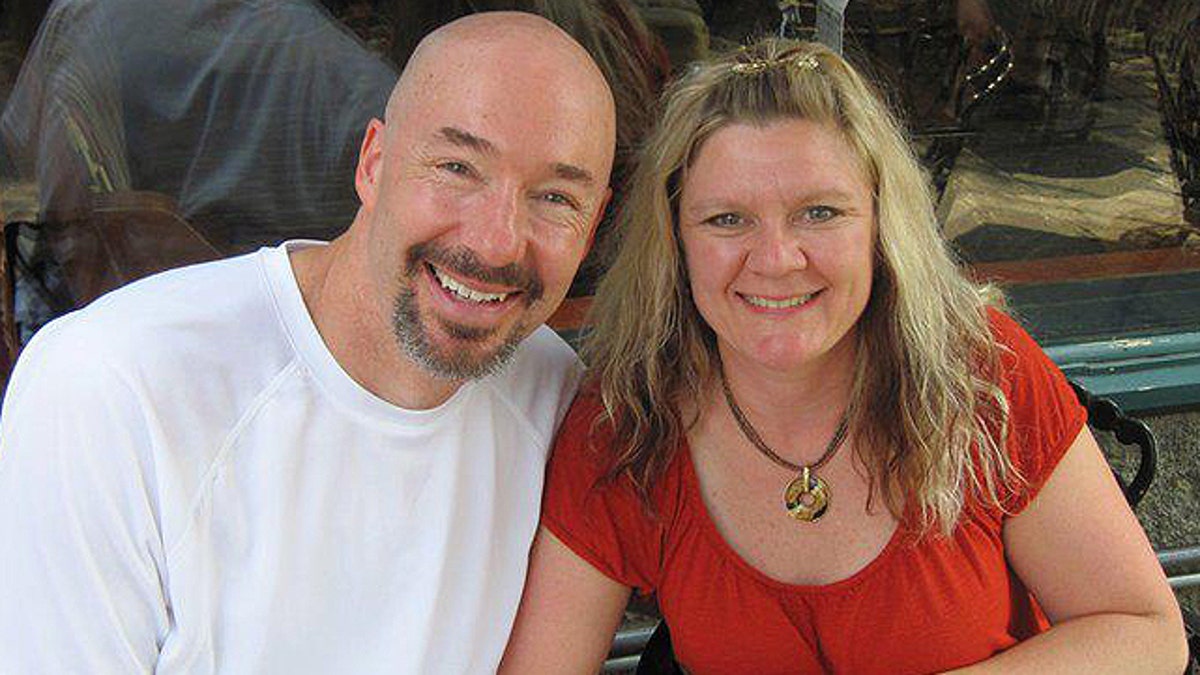
John Kiel and Michelle Landrum, longtime Center for Inquiry members, are seeking to have their upcoming wedding conducted and solemnized by a Center for Inquiry secular celebrant. (Courtesy: John Kiel/Michelle Landrum)
An atheist organization claims Indiana’s marriage statute is unconstitutional because it doesn't allow nonbelievers to be married by their own leaders, but state officials say the group is divorced from reality.
The New York-based Center for Inquiry claims in a federal lawsuit that Indiana Code 31-11-6-1 violates the Establishment Clause of the First Amendment since it sets clear preference for religious individuals over those devoted to the “pursuit of ethical alternatives to religion.” The group says it filed suit on behalf of members John Kiel and Michelle Landrum, who plan to wed in the next six months.
“You can have a ceremony as a nonreligious person and have the marriage solemnized by someone in the government, but the issue is that a person of faith can have a leader of their world view solemnize that marriage that the nonreligious do not have,” said Paul Fidalgo, communications director for The Center for Inquiry. “They are looking to win that right, to have it solemnized. That’s the key word.”
According to Hoosier State law, marriages may be solemnized by a member of the clergy or a religious organization such as a priest, a bishop, an archbishop or a rabbi, as well as government officials like a mayor, a clerk or a clerk of the circuit court. It also specifically names the Friends Church, German Baptists, the Baha’i faith, the Church of Jesus Christ of Latter Day Saints and imams of a mosque as groups who can conduct marriages in the state. Nowhere does the statute list "secular celebrants," or anyone else whose status is based on their disbelief in a creator.
[pullquote]
A ceremony solemnized by secular elected officials - even if they happen to be atheists - is not acceptable, according to the suit, for several reasons, including limitations on time and places where the marriage may occur, unwanted governmental overtone and a lack of personal connection to that official.
“As an organization, the Center for Inquiry desires that its secular celebrants perform weddings for all those who request such wedding, both members and nonmembers,” the lawsuit reads. “The Center for Inquiry-Indiana believes this to be an important community service for persons desiring to have a meaningful, but nonreligious, wedding.”
The Center for Inquiry, which was founded in 1991, is an international nonprofit group that claims "tens of thousands" of members nationally, including approximately 230 in Indiana who pay dues. Kiel and Landrum, who now live in Kentucky but are members of the group's Indiana chapter and plan to wed in Marion County, Indiana, say they want their ceremony performed by Reba Boyd Wooden, a Center for Inquiry "secular celebrant."
“They adhere to the values of the Center for Inquiry and secular humanism and reject the position that morals and ethics are imposed from a supernatural source,” the lawsuit reads. “However, they are committed to living meaningful ethical lives consistent with their personal beliefs and philosophies.”
A U.S. District Court judge for the Southern District of Indiana heard arguments Monday, but gave no timetable as to when a ruling will be issued.
Bryan Corbin, a public information officer for the Office of the Indiana Attorney General, told FoxNews.com that the state opposes an injunction, noting that the purpose of the statute is for the state to regulate marriage while accommodating religious groups and providing alternatives for nonreligious groups.
Corbin, who declined to comment due to pending litigation, provided a copy of a brief filing by the Attorney General’s Office earlier this month that argues there’s no constitutional right to solemnize marriages.
“In this regard, it is important to bear in mind that nothing precludes plaintiffs Landrum and Kiel from celebrating their marriage with exactly the ceremony they see fit, and nothing prevents CFI-trained celebrants from ‘presiding’ over such weddings,” the document reads. “All CFI-trained celebrants are barred from doing — unless they qualify under the Solemnization Statute — is signing the marriage certificate as the solemnizer.”

